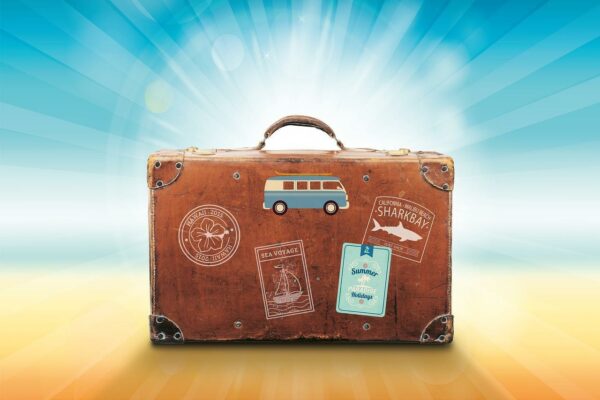
A guide to financial protection for your holiday
Booking a holiday can sometimes be as nerve-wracking as it is exciting. You've no doubt put a lot of time and money aside to plan for your dream getaway, so if anything goes wrong, it puts all of this at risk. We believe that everyone planning their holiday deserves to have peace of mind and relaxation at the centre of the experience, not anxiety.
To try and achieve this, we’ve put together an easy-to-understand guide about financial protection for your holiday, which will outline the safest and most secure way to book a holiday and how you can protect the money you have invested.
Package holidays
Package holidays are a fantastic option for those on a budget as it's possible to get all the services you need for one set price. This usually includes transport, accommodation, food and drink, but sometimes extends to excursions and vehicle hire as well, saving you the hassle of trying to research and organise all of these things individually. This can be particularly useful if you're going to a non-English speaking country or are very new to the place you're visiting, as you have peace of mind that everything has been dealt with already.
A key benefit of booking via a package holiday provider is that they are covered by extensive regulations put in place by the government. Without these, there would be potential risks associated with third-party services not communicating with the package holiday provider, resulting in one part of the holiday falling apart, which could then affect the other parts.
There are regulations to protect you from instances like this happening, which make the organiser liable for the performance of the services that make up the package. These regulations ensure that you get refunded should anything go wrong and require providers to have detailed information available to you so that you know exactly what you are buying and the protections in place.
Package holidays are also more likely to be covered by ATOL and ABTA protection, which we discuss below.
ATOL Protection
It's vital that you ensure you are ATOL protected before you travel. ATOL stands for 'Air Travel Organisers’ Licensing' and is run by the Civil Aviation Authority. It was introduced in 1973 and updated in 2012 to ensure that consumers are protected should travel companies go bust and not end up stranded. Customers should always check the company they're using has an ATOL licence as this means they will be protected should the company cancel the holiday or dissolve.
For example, the insolvency of Monarch Airlines in 2017 saw many people with booked holidays out of pocket and some stranded abroad with their return flights cancelled. In this instance, over 100,000 people were repatriated thanks to ATOL protection, proving just how vital it is. Those without ATOL protection would have to find their own way home by booking new flights, with no guarantee there would be any available transport or accommodation, and activities potentially cancelled.
You can check your holiday is ATOL protected by looking for the logo on travel company websites and ads or asking your travel company or agent directly. The Civil Aviation Authority also has a search tool which allows you to check that a company claiming to be ATOL protected is telling the truth.
ABTA Protection
Similarly, ABTA is another important type of protection that can provide urgent help should things go wrong on your holiday. It stands for the Association of British Travel Agents and is made up of travel agents and tour operators. It's equivalent to ATOL in that it offers protection should your travel company encounter financial problems, organising a way for you to continue the holiday and get home, plus receive any refunds you're owed. However, the key difference is that ATOL is specifically designed to cover holidays where you have travelled by air, whereas ABTA is for holidays that don’t include flights, such as a coach, rail or cruise package holiday.
It also has a detailed code of conduct that all of its members must adhere to, which includes guidance on advertising, when bookings can be changed, paperwork and complaints procedures.
Check your travel company’s website for information that states they are ABTA protected. Companies legally have to provide you with a protection certificate for either ABTA and ATOL protection, which you should take with you on holiday in case of an emergency to prove you are covered.
Travel insurance
Travel insurance may seem like an unnecessary added expense to your holiday, but this isn't the case in reality. It doesn't have to be expensive and can help you save money in the long run if things go wrong when you're on holiday. For example, travel insurance policies are designed to cover medical bills should you encounter an medical emergency, with specialised rates for those over 65 or with pre-existing medical conditions, for whom it is especially important to be covered. Overseas medical bills can be very expensive and could pose a real problem if you're not prepared.
Travel insurance also can provide cancellation cover if you need to cancel your holiday due to illness, injury or being called for jury service.
Article tagged with:

